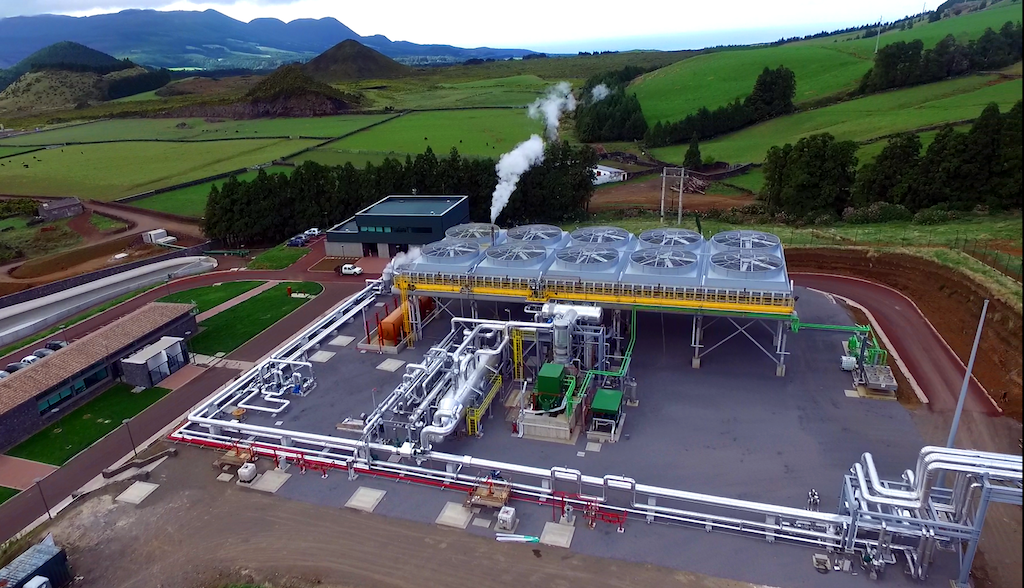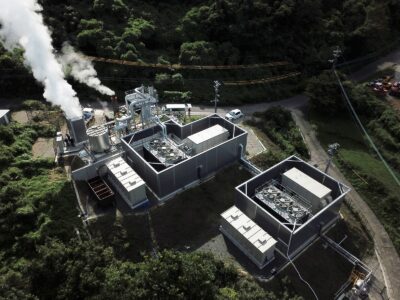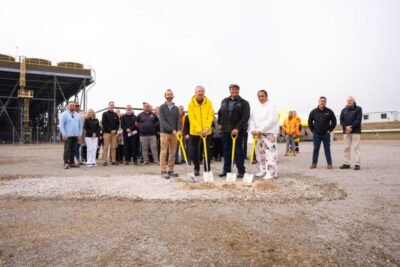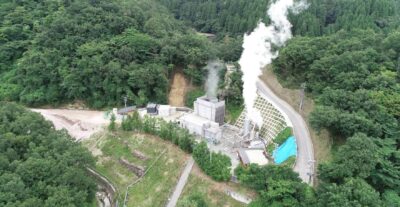The untapped opportunity – Making geothermal happen for island states
With their high energy costs and effects of climate change, island states in the Pacific, Caribbean and Atlantic are facing similar issues in providing affordable and sustainable energy for their population and economic development. IGC Island - the geothermal event will discuss these issues on Terceira, 15-16 May 2019
For decades, deep geothermal energy has been one of the world’s most reliable renewable energy sources. At present, 83 countries generate deep geothermal electricity and heat, making an important contribution to global CO2 reduction and climate protection. Demolishing a well several thousand meters deep and building a modern, high-performance power plant is already a challenge on the continental mainland. But what about quite small island states?
Especially they are the ones who have been making urgent appeals to the delegates for years at the UN climate conferences. Small, spatially limited, with only a few domestic energy sources and often economically weak, (small) island states are still very dependent on expensive imports of fossil fuels. The electricity prices for companies and private households are high there and often lie at USD 0.50 / kWh (ThinkGeoEnergy, 24.3.2018), which at the same time creates a growth barrier for the domestic economy.
Nevertheless, some of the smaller and larger island states have already begun to convert their energy infrastructure to renewable energy. You get help from different donor countries and institutions. For example, IRENA, the International Renewable Energy Organization, is supporting expansion in these countries with the SIDS Small Island Developing States (SIDS Lighthouses Initiative). USD 300 million has already been invested by 2017 and should reach USD 500 million by 2020 (Ueltzen, 2017). Different renewable technologies are promoted. The largest part will be invested in the expansion of wind and solar energy. But also the deep geothermal energy is quite attractive for island states. The World Bank and other development banks have set up heavily subsidized development programs that help various island states in their policy of transforming renewable energy. A few days ago, the Inter-American Development Bank (IDB) and the Caribbean Development Bank (CDB) announced that they would provide $ 85 million to develop deep geothermal energy in the Eastern Caribbean (ThinkGeoEnergy, 17.12.2018).
Deep geothermal projects can become lucrative investments for island states, as many of them are of volcanic origin and, because of these particular geological conditions, the geothermal resource is virtually created along the “native” plate boundaries. Depending on the region, you often do not have to drill at too great depths like on the continental mainland.
Example Azores
The archipelago of the Azores belongs politically to Portugal and lies in the middle of the North Atlantic. It is part of the mid-ocean ridge that has surfaced above sea level, much like Iceland. In the subsoil of the Azores, temperatures are sometimes well over 200 degrees Celsius, which enables a powerful geothermal energy supply with high-temperature projects.
Geothermal energy has been used in the Azores since the 1970s. To date, more than 230 geothermal MWs have been installed on the archipelago, which accounts for almost 23 percent of the electricity needs of the entire island archipelago. In addition to the main island of Saõ Miguel with its five geothermal power plants, the island of Terceira further expanded its geothermal capacity by another 4 MW in August 2017 to just under 30 MW. When the “Pico Alto” power plant in the northwest of the island went into operation last year, it produced just under 11,000 MWh within four months and avoided CO2 emissions of a good 7,400 tonnes over this period. The power plant was planned, developed and implemented by the Italian power plant manufacturer Exergy, by the Portuguese company CME and EDA Renováveis, the local electricity supplier. As a result of this investment, Terceira can now cover not only a substantial part of the annual electricity supply from geothermal energy. On several days a year, even a full supply of renewable energies is achieved there (ThinkGeoEnergy, 17.12.2018).
Funding opportunities for islands of the European Union
The Azores thus make a major contribution to their mother nation Portugal to the EU package “Clean Energy for all Europeans“, which was adopted by the European Parliament in 2016. In it, the European Union has set itself the goal of becoming a global leader in renewable energies by 2030. It intends to provide 27 percent of electricity from renewable technologies at EU level, but does not want to transfer this to binding national targets. Instead, Member States undertake to contribute, as part of the integrated national energy and climate plans, as part of the governance proposal for the collective fulfillment of the defined objective of the European Union.
In May 2017, the European Union set up a further “Clean Energy for All European Islands Initiative” for the local expansion of renewable energies, including geothermal energy, specifically for European island states. The initiative aims to drive the transition to cleaner, more modern and innovative energy systems on the more than 2,700 islands in Europe, while reducing their reliance on expensive energy imports by developing domestic renewable energy sources or making more efficient use of them.
Networking and industry exchange is urgently needed
The development of geothermal projects in island states is very complex and complex. The space is limited, the arrival for expert teams, drill team and delivery routes for the entire equipment needed long and demanding (flight, ship, climate, weather, etc.). Often there is not even an appropriate infrastructure (keywords: roads, power lines, water supply, mass transport, etc.). Due to the special protection status of the island states, there are extensive nature reserves with corresponding legal regulations, which must be taken very carefully into account in the field development. In order to make the development of geothermal projects in these countries more efficient, it requires an intensive exchange with experts in the international geothermal industry and representatives of the island states.
The launch of the long-awaited networking platform for island nations will be hosted by the international IGC Islands Congress, which will be held by Enerchange on 15 and 16 May 2019 in Terceira Island, Azores, with its Icelandic partner ThinkGeoEnergy, Italian power plant manufacturer Exergy and host EDA Renováveis. The main congress informs about the various financing models of geothermal projects for island states and concrete implementation options with specific workshops and lectures by international technical and economic experts. On the excursion to the newest “Pico Alto” power plant on Terceira Island, the power plant manufacturer Exergy, together with its partners, will address the specific challenges in the planning and development of the project under the sometimes harsh climate in the volcanic terrain of the nature reserve.
An Early Bird Discount for congress and excursion is available until 20 February 2019.
Registrations at www.igc-islands.com.
Source: our partner site TiefeGeothermie



















